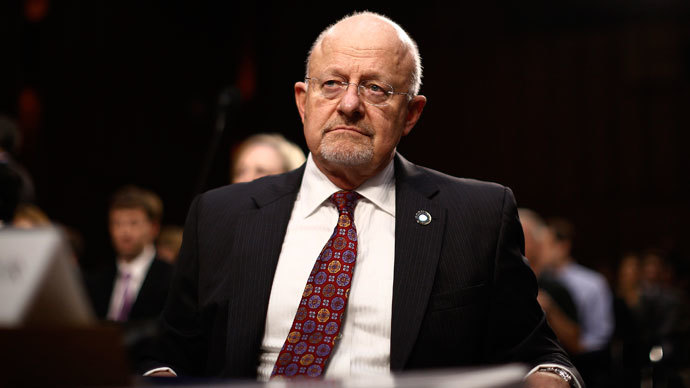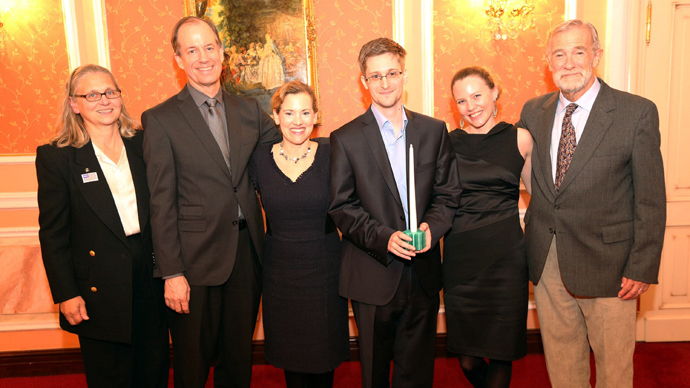Secret US court, unrestrained by privacy concerns, confirms NSA surveillance powers

A US federal court tasked with monitoring spy agencies confirmed the NSA’s authority for bulk collection of phone metadata. The extension of the agency’s digital spying revealed by Edward Snowden has triggered a major debate on privacy.
The National Security Agency is believed to have requested authorization from the Foreign Intelligence Surveillance Court (FISC) for a dragnet data collection roughly every six months since 2006. The practice was first made public after a June publication in the Guardian, based on classified documents leaked by Snowden, a former NSA contractor.
Public outrage over what many consider a gross violation of privacy does not seem to have changed the mind of the judges sitting on the secret court. The latest NSA request to confirm its authority was granted, the office of James Clapper, Director of National Intelligence, revealed Friday.
"DNI Clapper has decided to declassify and disclose publicly that the government filed an application with the Foreign Intelligence Surveillance Court seeking renewal of the authority to collect telephony metadata in bulk, and that the court renewed that authority," Clapper spokesman Shawn Turner said. This disclosure is "consistent with his prior declassification decision and in light of the significant and continuing public interest in the telephony metadata collection program."
Last month the FISC also declassified a court opinion authorizing the bulk metadata collection. The court said the NSA’s counterterrorism mission justified the collection and is subject to less limitation than investigations of ordinary crimes, because the agency needs to prevent future terrorist attacks planned by perpetrators, who may be unknown.
The ruling drew criticism from privacy groups, who said it gave the NSA too much leeway and was not in line with the US Constitution or the Foreign Intelligence Surveillance Act.

Clapper earlier voiced a rare opinion of restrained approval of Snowden’s actions, saying his leaks have generated a much needed debate about surveillance.
“As loathe as I am to give any credit for what’s happened here, which is egregious…” he said, “I think it’s clear that some of the conversations that this has generated, some of the debate… actually probably needed to happen.”
“If there’s a good side to this, maybe that’s it,” Clapper said.
US intelligence officials have generally referred to Snowden as a traitor or a criminal who compromised US national security.
The public outcry in the wake of Snowden’s revelations made the Obama administration pledge to conduct an overhaul of the US spy programs and provide more transparency, supervision and safeguards into collection of digital data. But the government maintains the NSA is not overstepping its authority and isn’t breaking US laws.
The US is currently seeking to prosecute Snowden on espionage charges over his leaks. The whistleblower remains a fugitive from US law and in August was granted temporary, one-year asylum in Russia.














